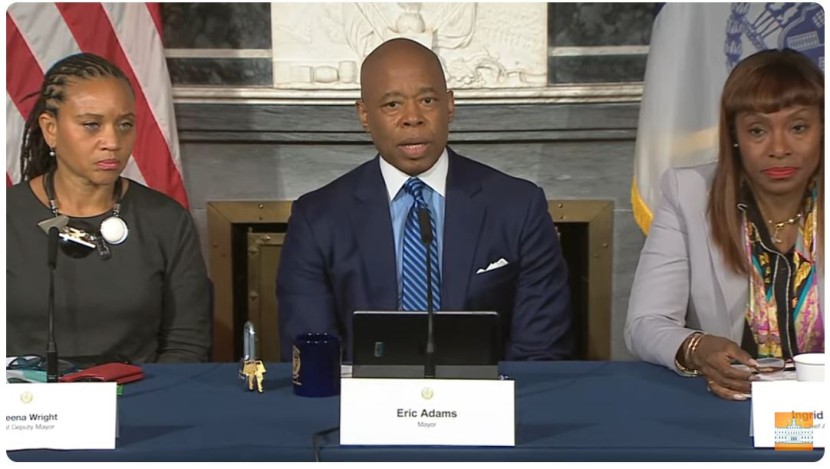
In a stunning legal decision, a federal judge has permanently dismissed the corruption case against New York City Mayor Eric Adams, blocking the Trump Justice Department from ever bringing the charges again.
The move comes after a firestorm of controversy surrounding the DOJ's handling of the case, including high-profile resignations and allegations of political maneuvering.
Judge Dale Ho ruled on Tuesday that his hands were tied, despite expressing concerns about the Justice Department's motives for dropping the case. "Everything here smacks of a bargain: dismissal of the indictment in exchange for immigration policy concessions," he wrote in a 78-page opinion.
He described the DOJ's actions as "disturbing" and warned that they suggested public officials might receive special treatment if they aligned with political priorities. "That suggestion is fundamentally incompatible with the basic promise of equal justice under the law."
The Justice Department defended its decision to drop the case, with a spokesperson stating, "This case was an example of political weaponization and a waste of resources. We are focused on arresting and prosecuting terrorists while returning the Department of Justice to its core mission of keeping Americans safe."
Adams' attorney, Alex Spiro, celebrated the ruling, saying, "This case should have never been brought in the first place – and finally today that case is gone forever. From Day 1, the mayor has maintained his innocence and now justice for Eric Adams and New Yorkers has prevailed."
The controversy erupted after Adams, who is up for reelection this fall, was indicted in September on bribery, wire fraud, and conspiracy charges. Prosecutors alleged he had solicited campaign contributions from foreign nationals in exchange for political favors, dating back to his time as Brooklyn Borough President.
The indictment accused Adams of accepting luxury perks from a Turkish official and pressuring a New York City Fire Department official to approve permits for a Turkish consular building that had failed inspection.
In February, the Trump Justice Department recommended dropping the case, arguing it was interfering with Adams' ability to combat illegal immigration and violent crime. Then-acting Deputy Attorney General Emil Bove stated, "The pending prosecution has unduly restricted Mayor Adams' ability to devote full attention and resources to the illegal immigration and violent crime that escalated under the policies of the prior Administration."
However, the decision to abandon the case triggered an internal DOJ revolt, with multiple prosecutors—including then-acting US Attorney for the Southern District of New York, Danielle Sassoon—resigning in protest.
In her resignation letter, Sassoon claimed that Adams' lawyers had suggested a quid pro quo: that he would assist with Trump's immigration enforcement priorities only if the charges were dropped.
Judge Ho ultimately sided with conservative attorney Paul Clement, whom he appointed to review the DOJ's request. Clement argued that dismissing the case with prejudice—preventing the charges from ever being refiled—was the best way to ensure legal accountability and avoid the appearance of political coercion.
"A dismissal without prejudice creates a palpable sense that the prosecution outlined in the indictment and approved by a grand jury could be renewed, a prospect that hangs like the proverbial Sword of Damocles over the accused," Clement wrote.
Rev. Al Sharpton weighed in on the ruling, emphasizing its political implications. "It takes away the feeling that he was under the thumb of the president," Sharpton told CNN. "It clearly says that now whatever he does, now he'll be judged on his own decisions."
Judge Ho made it clear that his ruling was not a judgment on Adams' guilt or innocence but rather a necessary step to prevent undue political influence over the justice system. "Bringing these decisions into the open may, in turn, lead to attempts by the public to influence these decisions through democratic channels," he wrote.
With the case now closed for good, Adams can focus on his reelection bid—though the shadow of the corruption allegations may still loom over his campaign.








